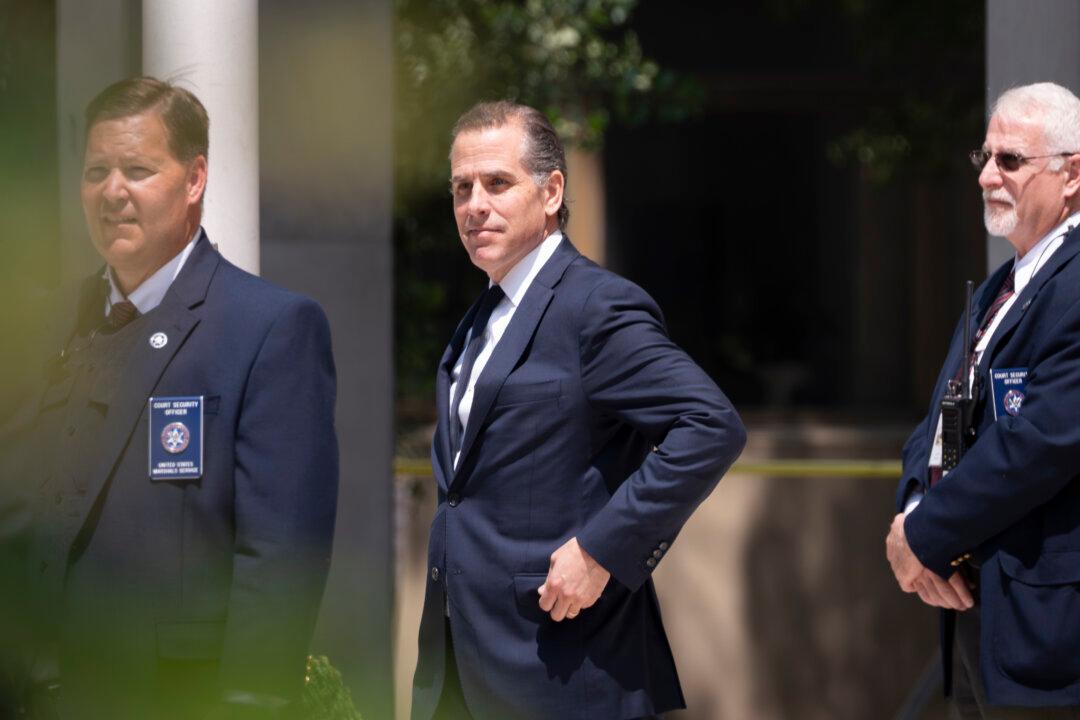WILMINGTON, Del.—President Joe Biden’s son Hunter Biden on July 26 appeared in Wilmington for a plea hearing, but the hearing ended with no outcome due to disagreements between attorneys and the presiding judge.
Mr. Hunter Biden appeared at the J. Caleb Boggs Federal Building to have a judge hear a plea agreement involving three counts: two misdemeanor charges for willful failure to file tax and a felony firearm charge that was expected to be diverted through a pretrial agreement that became a flashpoint of controversy in a confused hearing.





